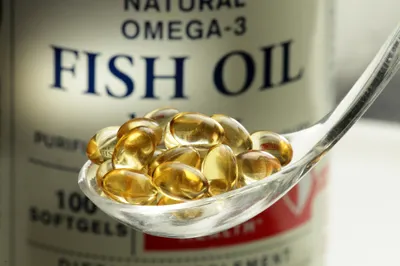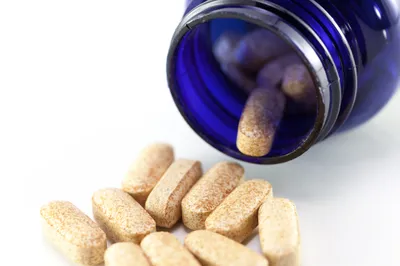Recently, the news headlines have been pretty rough on herbs. From accusations of mislabeling to questions about concentrations, herbal supplements have been bearing the brunt of hostility from the public, investigations from Health Canada, and recalls from the U.S. Food and Drug Administration (FDA).
However, according to leading health experts, the herbal criticism isn’t completely unfounded. With Americans spending roughly $5 billion per year on herbal products to fight everything from aging to colds, a new onslaught of “buyer beware” headlines and safety tips concerning herbal supplements have emerged…
1. Supplements with Unlisted Ingredients
This week an investigation by Health Canada revealed that several Herbal Plus supplements, sold by GNC stores in the U.S. and Canada might not be exactly what they claim to be. The findings led to a cease-and-desist letters issued to four New York-based retailers—including Walmart, GNC, Target, and Walgreens.
Further DNA barcoding studies conducted by the New York Attorney General’s Office discovered that the Herbal Plus-branded Echinacea, ginkgo biloba, saw palmetto, ginseng, and St. John’s wort didn’t contain the as advertised ingredients while many actually included unlisted ingredients. GNC claims total compliance with U.S. and Canadian regulations as investigations continue.
2. Herbal Labeling Fraud
Biologists at the University of Guelph’s Biodiversity Institute of Ontario conducted DNA barcoding tests (or genetic fingerprinting) on 44 bottles of popular supplements, such as Echinacea and St. John’s wort, manufactured by a dozen large health companies.
Shocking test results revealed that a large majority of the 44 herbal products tested were either diluted or entirely fraudulent. For example, one-third of the supplements found zero traces of the plant advertised on the bottle. Most used another plant or cheap fillers (i.e., rice, soybean, or wheat).
3. Supplements with Dangerous Interactions
The same 2013 study from the University of Guelph’s Biodiversity Institute of Ontario, detected mislabeling on supplements that could pose harm on its own and when mixed with other medications.
For instance, out of the 44 supplements tested, 2 sample of Echinacea contained unlisted parthenium hysterophorus, a bitter weed that’s been linked to painful gas, rashes, and nausea. Additional research from the National Institutes of Health found that prolonged exposure to parthenium hysterophorus could cause eczema, hay fever, skin inflammation, asthma, burning eyes, allergic rhinitis, black spotting vision, and blisters around eye area.
4. Supplements with Potentially Deadly Substitutions
Several small research studies, published in the reputed journal, BMC Medicine, uncovered some shocking findings concerning supplements and food allergies.
For instance, ginkgo biloba, often taken to improve memory, is often infused with unlisted black walnut—an obvious danger to those with nut allergies. Further investigations of supplements labeled as St. John’s wort found an outright substitution for the herb in place of wheat and soybean—again a health concern for people with soy and gluten allergies.
5. Snake Oil vs. Herbal Remedy
There has long been a debate over whether herbal “fat burners” cause liver damage. In 2013, the U.S. Food and Drug Administration pulled OxyElite herbal supplement from consumer retail outlets after it was connected to multiple cases of liver failure. The manufacturer was later jailed for selling the “magical” weight loss cure.
According to this research study, published by the National Institutes of Health, despite patient perceptions, many herbal remedies that tout “fat burning” benefits contain potentially toxic usnic acid, green tea and guggul tree extracts, which can lead to severe hepatotoxicity—including liver failure and need for emergency transplant.
6. Questioning DNA Barcoding of Supplements
You’re not alone, I scratched my head over what exactly DNA barcoding was as well. This form of genetic fingerprinting—meant to pinpoint a plant species by pulling a tiny segment of DNA—is a process surrounded by its own share of controversy.
For example, supplement providers claim that for DNA barcoding to be reliable, a complete database of pre-identified DNA samples must be in place for comparison, and this is currently not the case. Scientists from the Office of Dietary Supplements at the National Institutes of Health also assert that DNA barcoding is not an adequate test for fully potent supplements that contain plant extracts, which many do.
7. Reading Through the Headlines
Largely, experts agree that even if an herbal supplement is mislabeled and totally ineffective—it’s typically safe (unless you have a food allergy). The biggest danger remains with quick fix supplements that promote higher metabolism, better performance, and quick weight loss.
According to medical doctors at the University of North Carolina, at Chapel Hill, there are no quick fixes and most of these weight loss pills will land you in ER with serious liver damage, or worse, potentially fatal liver failure. This is why representatives from the FDA’s Division of Dietary Supplements urges consumers to read the claims and avoid taking products that sound to good to be true.










